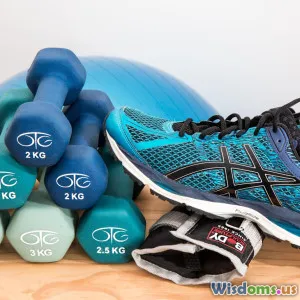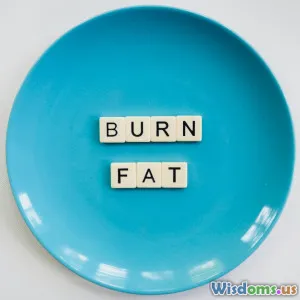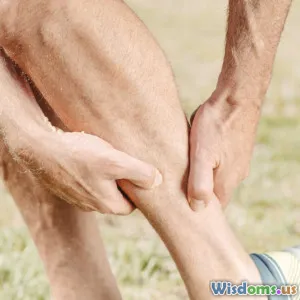
Debunking Popular Weight Loss Myths with Real Studies
16 min read Uncover the truth behind common weight loss myths through scientifically backed studies and evidence-based facts. (0 Reviews)
Debunking Popular Weight Loss Myths with Real Studies
Every day, millions of people search the internet for weight loss advice, eager for quick fixes and miraculous shortcuts. It's a world flooded with bold claims, fad diets, and conflicting opinions. But how much of what we believe about shedding pounds is supported by science? Today, we're diving deep to demystify some of the most widespread weight loss myths using robust, peer-reviewed research, empowering you to separate fact from fiction on your wellness journey.
Myth: "All Calories Are Equal"
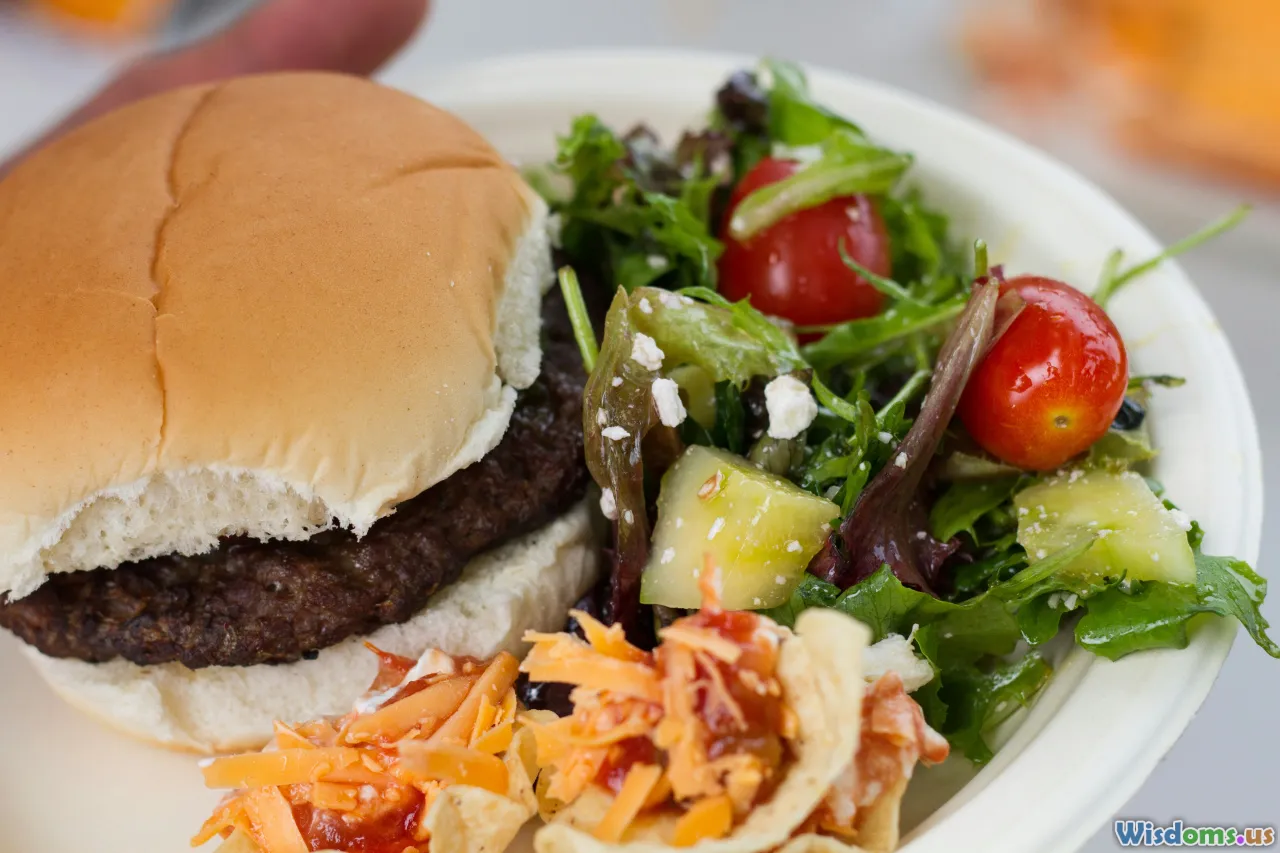
It's tempting to believe that losing weight is as simple as cutting calories, regardless of where those calories come from. However, multiple studies tell a more nuanced story: the source of your calories matters, influencing how full you feel, your metabolism, and your overall health.
The Science Behind the Calorie Equation
Research published in the Journal of the American Medical Association (Ebbeling et al., 2012) explored how different diets affected energy expenditure. Participants on a low-carbohydrate diet burned more calories at rest than on low-fat diets, even when total caloric intake remained the same. This suggests your body doesn't process 100 calories from broccoli, beef, or soda in identical ways.
Moreover, proteins, fats, and carbohydrates each follow varied metabolic paths. Protein, for instance, has a higher thermogenic effect, meaning you burn more calories digesting it. That’s why higher-protein diets often win out in satiety and fat loss studies – they're more satisfying and rev up your body's calorie-burning engine.
Actionable Takeaway: For long-term weight loss, focus on food quality, not just counting calories. Include lean proteins, healthy fats, and fibrous veggies for a metabolism-friendly plate.
Myth: "Carbs Make You Fat"
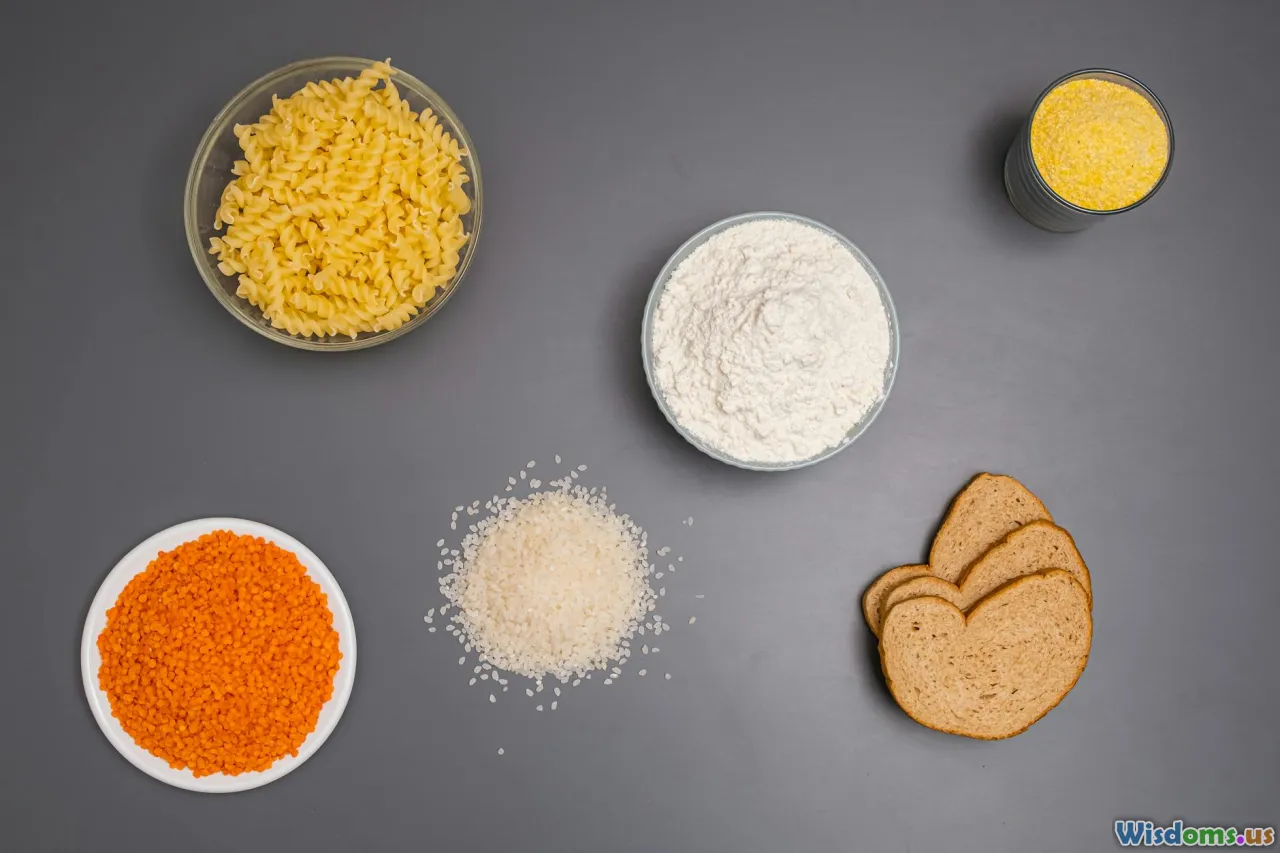
The war on carbohydrates has raged for decades, spawning popular diets like Atkins and ketogenic regimens. But the blanket statement "carbs make you fat" doesn't hold up under scientific scrutiny.
What the Evidence Reveals
A sweeping review published in The Lancet Public Health (Seidelmann et al., 2018) followed over 15,000 adults for 25 years. It revealed that both extremely low and high carbohydrate consumption were linked with higher mortality, but moderate carb intakes (around 50–55% of calories) showed the lowest risk.
Further, studies highlight the difference between simple, highly processed carbs (white bread, pastries, sugary beverages) and complex, fiber-rich sources (fruits, legumes, whole grains). For instance, analysis from the Harvard T.H. Chan School of Public Health found that diets rich in whole grains are associated with lower body weight and reduced risk for chronic diseases.
Actionable Takeaway: Instead of demonizing all carbs, prioritize minimally processed, fiber-rich varieties like oats, quinoa, sweet potatoes, and fresh fruit.
Myth: "Fat Should Be Avoided to Lose Weight"

Decades of "low fat" diet trends have led many to believe that dietary fat inherently causes obesity. But contemporary research reveals a much more complex relationship between fat intake and health.
Real-World Examples
A landmark study known as the PREDIMED trial (Estruch et al., 2013) demonstrated that a Mediterranean diet high in healthy fats, especially from olive oil and nuts, led to more weight loss and better heart health markers when compared to a traditional low-fat diet. Participants who embraced healthy fats experienced significantly lower waist circumference and lower incidence of metabolic syndrome.
Moreover, fats are crucial for hormone production, cell health, and satiety. Skimping on them can provoke cravings, creating a cycle of deprivation and overeating.
Actionable Takeaway: Incorporate unsaturated fats from fishes, nuts, seeds, and olive oil. These promote fullness and long-term metabolic wellbeing.
Myth: "You Can Out-Exercise a Bad Diet"

There's a persistent belief that endless hours in the gym can "undo" poor eating. While physical activity is essential for overall health, science shows it’s not a magic bullet for major weight loss if your dietary patterns sabotage your efforts.
Analysis and Studies
A study in Obesity Reviews (Swift et al., 2014) complied results indicating that while exercise can support modest fat loss and prevent weight regain, dietary changes produce the most impactful results. Burning off the calories from even a single fast-food meal could require more hours of vigorous exercise than most people can realistically sustain.
Additionally, exercise impacts the body in ways beyond the scale: it helps preserve muscle mass during calorie deficits, improves mental well-being, combats inflammation, and reduces chronic disease risk.
Actionable Takeaway: Aim to combine moderate exercise with balanced nutrition. Think of fitness as a complement to, not a substitute for, a healthy diet.
Myth: "Detox Teas and Supplements Burn Fat Fast"

Social media influencers hawk detox teas, slimming coffee, and exotic weight loss pills with the promise of rapid results. But do these products stand up to scientific scrutiny? Spoiler: There’s scant evidence to back their claims, and some could even be dangerous.
Facts vs. Fads
The U.S. Federal Trade Commission regularly prosecutes companies selling fraudulent fat-burning supplements. Clinical reviews, including one from the Annals of Internal Medicine (Onakpoya et al., 2012), consistently show that popular so-called "fat burners" (like green tea extracts, raspberry ketones, and bitter orange) rarely produce more than a 1–2 pound difference compared to placebo, and sometimes have harmful side effects.
Detox teas often function as glorified laxatives, leading to dehydration and electrolyte disturbances rather than genuine fat loss.
Actionable Takeaway: Invest your dollars and trust in real, whole foods and evidence-backed lifestyle changes—not Instagram-promoted miracle products.
Myth: "Skipping Meals Accelerates Weight Loss"

Some diet plans advocate skipping breakfast or other meals as a shortcut to rapid fat loss. While short-term fasting protocols, like intermittent fasting, do have potential, random or chaotic meal skipping typically backfires.
Why Skipping Meals Rarely Works Long-Term
Studies examined by the American Journal of Clinical Nutrition (LeCheminant et al., 2013) point out that people who skip breakfast don't typically consume fewer calories by the day's end. In fact, erratic eating increases risk for binge eating, unstable blood sugar, and metabolic slowdowns.
Structured intermittent fasting may help some break habitual overeating. However, it's effective only if total caloric intake is genuinely reduced, not simply consolidated into a shorter time window. For many, this approach is unsustainable and can trigger cravings for high-calorie foods.
Actionable Takeaway: Focus on regular, nourishing meals. If you experiment with intermittent fasting, do so mindfully and listen to your body’s hunger signals.
Myth: "You Need Willpower and Self-Control Alone to Lose Weight"

Many believe that successful weight loss is simply a matter of self-discipline. But science highlights how deeply our environment, genetics, and psychological signaling play into eating behavior—often superseding sheer willpower.
The Hidden Forces Behind Eating Behavior
A landmark twin study (Stunkard et al., 1990) found that up to 70% of body weight variation can be explained by genes, not lifestyle alone. This doesn’t mean weight loss is impossible, but it underscores that the playing field is not even for everyone.
Additionally, the "food environment"—easy access to oversized portions, engineered snacks, and constant cues to indulge—overwhelms even the best intentions. Behavioral research suggests modifying your surroundings is more effective than focusing on willpower alone. This can look like keeping tempting foods out of the house, planning meals in advance, or eating from smaller plates.
Actionable Takeaway: Build supportive systems that make healthy choices the easy choices. Structure, community, and planning trump white-knuckled discipline over the long run.
Myth: "Rapid Weight Loss Is Always Unsustainable or Dangerous"

Conventional wisdom warns against losing more than 1-2 pounds a week. While extreme crash diets do pose dangers, research suggests that more rapid weight loss—when adequately supervised and nutritionally complete—can be both effective and sustainable, especially for those with a significant amount to lose.
What Research Shows
A randomized controlled trial published in The Lancet Diabetes & Endocrinology (Purcell et al., 2014) compared rapid vs. gradual diet interventions. Both groups who maintained their weight loss strategies for long-term maintenance showed similar outcomes, dispelling the notion that a slower approach always ensures better results.
The real risk lies not in the rate, but in how weight is lost. Crash diets lacking nutrients, or that provoke muscle loss instead of fat, bode poorly for health. Conversely, medically supervised low-calorie diets, complete with dietary, behavioral, and, if necessary, medical oversight, are widely used to kickstart health improvements for people with obesity.
Actionable Takeaway: Consult with healthcare professionals before attempting aggressive weight loss, but don't fear rapid change if done safely and sensibly.
Myth: "Plateaus Mean You've Failed"

Every major weight loss journey, regardless of strategy, encounters periods where the number on the scale stalls. This is not a mark of failure but a natural physiological adaptation.
Plateaus Explained—And How to Overcome Them
Research published in Obesity (Hall et al., 2015) details how, as you lose weight, your resting metabolic rate slows down—a protective mechanism dating back to our ancestors’ need to survive famine. This “adaptive thermogenesis” should be expected, not feared.
Strategies to navigate plateaus include:
- Reassessing portion sizes (as needs drop with lower body weight);
- Gently increasing non-exercise activity (e.g. walking);
- Incorporating resistance training to preserve muscle mass;
- Celebrating non-scale victories, such as improved energy or better sleep.
Actionable Takeaway: View plateaus as signals to adjust and persist, not as evidence of failure. With patience, adaptation, and support, progress will resume.
Let Facts, Not Fads, Be Your Guide
Decoding weight loss myths isn’t just about pointing out popular misconceptions—it's about arming yourself with evidence-based, actionable methods to reach your health goals. Real change begins with deeper scientific understanding, not empty promises.
From food quality and nutrient balance to metabolic individuality and environmental cues, successful weight loss is a tapestry woven from many threads—not a single magic bullet. By questioning common myths and trusting the data, you’ll foster a mindset that supports lifelong wellbeing, not just another failed diet.
So, as you chart your path, let science—your most reliable guide—lead the way. Remember: The most effective journey is the one grounded in reality, compassion, and continuous learning.
Rate the Post
User Reviews
Popular Posts










